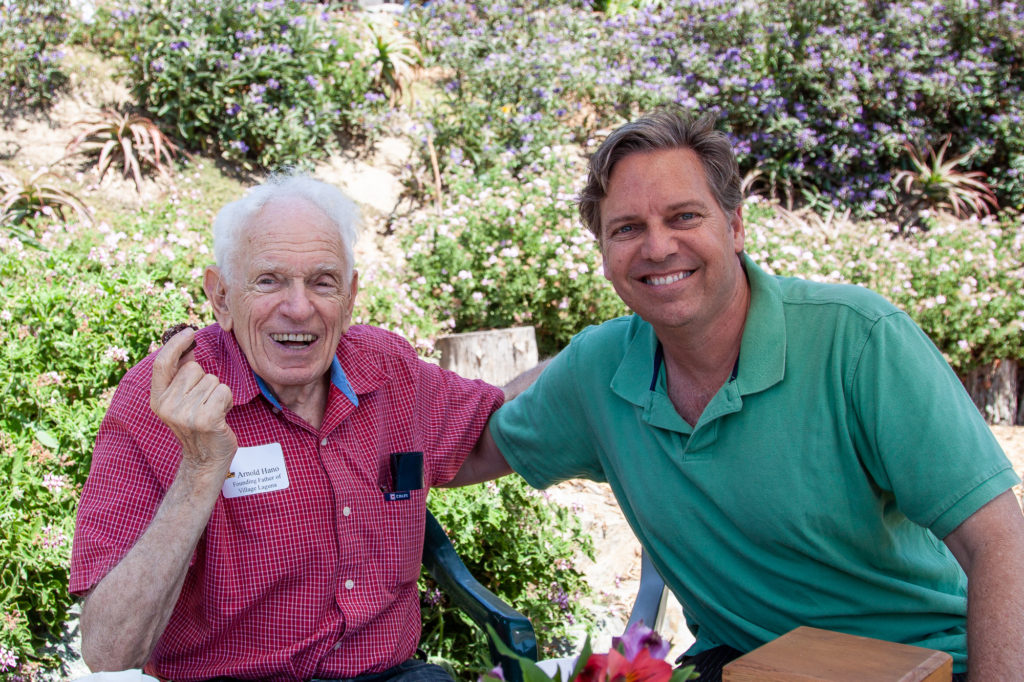
Like all of Laguna Beach, I was saddened to hear about Arnold Hano’s passing on Oct. 24. I enjoyed many conversations with him over the years. While often passionate and serious, he was also very funny and generous.
I remember a few years ago when I wrote about his latest book, “It Takes a Villager.” In it, he could be remarkably contemplative and touching, such when he described the death of his big brother during World War II:
“So it went,” he wrote. “Depression and war and marriage and kids and death. And I live on. I wonder why. I wonder how. I keep thinking that each column will be my last. But … next is life. Next is continuing. Next is gently putting aside regret. Next is placing my hand on my wife’s sweet back each night.”
Hano’s death has brought out many stories, including a long obituary in the New York Times. On a national level, Hano was remembered for his critically acclaimed baseball book, “A Day in the Bleachers.”
But for me and probably most of Laguna Beach, it was his dogged determination toward local issues. And, of course, his wife and better half, Bonnie.
With Hano, you could vehemently argue with him about some downtown issue but then turn around and be invited to break bread.
It’s a lost art to set aside grievances for the sake of friendship. To make a baseball analogy, even the Giants and the Dodgers can shake hands – if needed. Think of when Giants pitcher Juan Marichal clubbed Dodger catcher John Roseboro with a bat on Aug. 22, 1965. It was called the ugliest moment in baseball history.
It took several years but the two players eventually became friends in old age, realizing that they could do more through forgiveness than anger.
In a similar way, Hano knew when to play umpire and when to pick up a verbal bat.
I enjoyed both sides of him, and I’m pretty sure Laguna did too.
